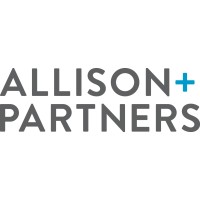Allison+Partners Korea, a healthcare PR agency, said it has set up a new team to promote rising Korean pharmaceutical and biotech companies on a global scale.

The Korean offshoot of Allison+Partners, a San Francisco-based global marketing and communications firm, said it aims to assist domestic pharma and biotech firms in gaining coverage in international media through its extensive global network.
Allison+Partners has a presence in 32 countries and offers a wide range of services including consumer marketing, corporate branding, healthcare communications, marketing consulting, and public relations.
Allison+Partners Korea is currently expanding its range of services beyond press releases for multinational pharmaceutical and biotech firms. This includes a focus on healthcare digital marketing and advertising, investor relations, and public affairs to better serve its clients.
In 2022, Allison+Partners received the Best Marketing PR Healthcare Award at the Korea PR Awards, the company said.
According to recent data from the Korea Pharmaceutical and Bio-Pharma Manufacturers Association (KPBMA), a total of 76 Korean pharmaceutical and biotech firms have expanded their footage in overseas markets, operating 276 research, production, sales facilities and local corporations in 45 countries.
In February of this year, President Yoon Suk Yeol unveiled a plan to invest 2.2 trillion won ($1.6 billion) in a national new drug development project aimed at positioning South Korea as one of the world's top six biopharmaceutical powerhouses by 2030.
In 2021, the global pharmaceutical market size was $1.4 trillion, which is 2.7 times larger than the global semiconductor market at $530 billion, industry data showed.
The aging populations and medical advances will expedite the pharmaceutical sector’s growth worldwide.
The Korean pharma and biotech industry, in particular, demonstrated a robust growth compared to other industries over the past five years between 2018 and 2022.
While the average annual growth rate was 0.5 percent for semiconductors, 7.2 percent for automobiles, and 3.1 percent for steel products, that for the bio-health industry was 13.2 percent, government data showed.

